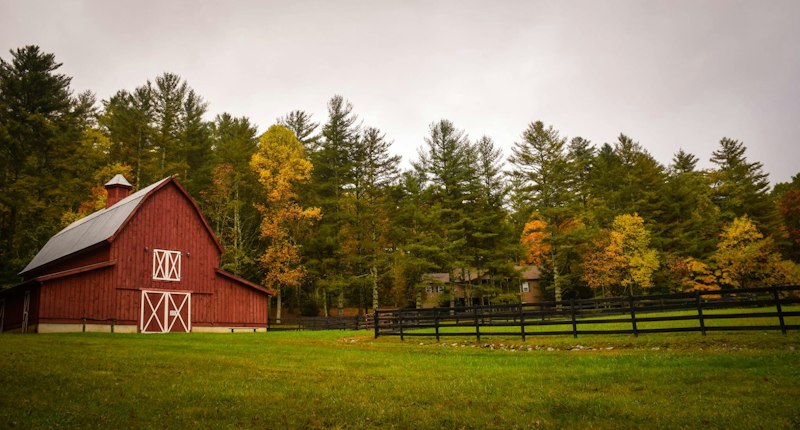If you’ve ever come across the code “228” and wondered which country it belongs to, we have the answer for you. The country code 228 is assigned to the West African nation of Togo. This small yet captivating country is situated on the Gulf of Guinea, bordered by Ghana to the west and Benin to the east.
Togo may be geographically small, but it boasts a rich cultural heritage and stunning natural beauty. From its vibrant markets in the capital city of Lomé to the breathtaking landscapes that encompass mountains, forests, and palm-fringed beaches, Togo offers a diverse range of experiences for travelers.
When you think of Togo, one image that might come to mind is the traditional wooden stilt houses found in the villages along its coast. These unique structures are not only visually striking but also serve a practical purpose, protecting communities from flooding during the rainy season.
Beyond its architectural wonders, Togo is known for its warm hospitality and welcoming people. The country is home to several ethnic groups, each with its own distinct traditions and languages. Exploring local markets and engaging with the friendly locals is a great way to immerse yourself in the vibrant Togolese culture.
Nature lovers will also find solace in Togo’s national parks and reserves. In the north, you’ll discover the rugged beauty of Kéran National Park, where elephants, buffalo, and antelope roam freely. Further south, the Fazao-Malfakassa National Park showcases dense forests and an array of wildlife species, including monkeys and rare birds.
As you explore Togo, don’t miss the opportunity to savor its delicious cuisine. From fufu (a staple made from cassava or yam) to grilled fish served with spicy sauces, Togolese dishes are a delightful fusion of flavors that will tantalize your taste buds.
Unraveling the Mystery: Revealing the Country Behind Code 228
Have you ever come across a mysterious country code that left you curious and intrigued? Code 228 is one such enigma that has piqued the interest of many. In this article, we will delve into the realm of telecommunication and unravel the mystery behind the country associated with this intriguing code.
Code 228 belongs to the beautiful West African nation of Togo. Nestled on the Gulf of Guinea, Togo is a captivating country known for its rich cultural heritage and stunning landscapes. Despite its relatively small size, Togo has an abundance of natural beauty, from palm-fringed beaches to lush forests and rolling hills.
Togo, officially known as the Togolese Republic, shares its borders with Ghana to the west, Benin to the east, and Burkina Faso to the north. The country’s capital and largest city is Lomé, a bustling metropolis that serves as a major port and commercial hub. Lomé embodies the vibrancy of Togo, with its lively markets, vibrant nightlife, and impressive colonial architecture.
Beyond its physical allure, Togo boasts a fascinating history and diverse cultural tapestry. Home to over 40 ethnic groups, the Togolese people embrace their traditions and celebrate their heritage through music, dance, and art. The country also hosts several colorful festivals throughout the year, offering visitors a glimpse into its vibrant cultural fabric.
For nature enthusiasts, Togo presents a myriad of opportunities to explore its untamed wilderness. From the picturesque Mount Agou, the highest peak in Togo, to the breathtaking Togodo Waterfall, there are countless natural wonders waiting to be discovered. Wildlife lovers can embark on an adventure in the Fazao-Malfakassa National Park, home to various species, including elephants, buffalos, and antelopes.
Moreover, Togo is an emerging destination for ecotourism, with sustainable initiatives aimed at preserving its natural treasures. The country’s commitment to conservation is reflected in its national parks and protected areas, where visitors can engage in responsible tourism while appreciating the biodiversity that thrives within.
Code 228: Exploring the National Identity of the Enigmatic Country
Introduction:
Have you ever wondered about the enigmatic country with the intriguing moniker “Code 228”? This captivating nation has piqued the curiosity of many, and in this article, we embark on a journey to unravel the secrets behind its national identity. Join us as we delve into the rich tapestry of history, culture, and traditions that define Code 228.
A Historical Tapestry:
Code 228 boasts a fascinating historical backdrop that has shaped its national identity. From ancient civilizations to colonial influences, this country’s past is woven with threads of diversity and resilience. Exploring its historical landmarks, you can almost hear the whispers of bygone eras echoing through time.
Culture and Traditions:
The cultural heritage of Code 228 is both vibrant and diverse. Its people are known for their warm hospitality, which forms the cornerstone of their national character. Traditional ceremonies and festivals showcase the colorful tapestry of customs and beliefs that bind communities together. Participation in these events provides a unique glimpse into the soul of Code 228.

Language and Cuisine:
Language is an integral part of any national identity, and Code 228 is no exception. The country boasts a melodic and expressive language that reflects its cultural nuances. Immerse yourself in the local dialects, and you’ll discover a deeper understanding of the people and their way of life.
In addition to language, cuisine plays a vital role in shaping national identity. Code 228 offers a gastronomic adventure like no other. From aromatic spices to mouthwatering delicacies, every bite reveals the fusion of flavors that define this country’s culinary landscape.
Natural Wonders:
Beyond its cultural treasures, Code 228 is blessed with breathtaking natural wonders. Majestic mountains, pristine lakes, and lush forests beckon adventurers and nature enthusiasts alike. Embarking on an exploration of these landscapes reveals the harmonious relationship between Code 228’s people and their natural surroundings.
Conclusion:
Code 228, the enigmatic country with a rich national identity, awaits those who are willing to delve deeper into its mysteries. From its historical tapestry to cultural traditions, language, cuisine, and natural wonders, this captivating nation has much to offer. So, pack your curiosity and embark on an unforgettable journey that will leave you amazed at the incredible heritage of Code 228.
From Dialing Codes to Cultural Insights: Decoding Country Code 228
Introduction:
Have you ever wondered about the fascinating world of dialing codes and what they reveal about different countries? In this article, we will embark on a journey to decode the mysteries behind country code 228. Beyond its practical use for international calls, country code 228 holds valuable cultural insights that can broaden our understanding of Togo.
Exploring Togo’s Rich History:
Country code 228 belongs to Togo, a West African nation nestled between Ghana and Benin. Togo boasts a rich history that dates back centuries, encompassing tribal kingdoms, colonial influences, and independence struggles. By delving into the history of Togo, we can grasp the context in which this dialing code plays a significant role today.
Vibrant Culture and Traditions:
Togo’s culture is as diverse as its landscape. From the bustling markets of Lomé, the capital city, to the rural communities, Togolese people celebrate their traditions with a vibrant spirit. The country’s various ethnic groups, including Ewe, Kabye, and Tem, contribute to an amalgamation of customs, languages, and artistic expressions that make Togo truly unique.
Gastronomic Delights:
No exploration of a country’s culture is complete without savoring its culinary delights. Togo offers a gastronomic adventure with dishes like fufu (a staple made from pounded cassava), akpan (fermented corn dough), and yovo-doko (grilled fish). These flavorsome creations reflect the fusion of indigenous ingredients and influences from neighboring countries.
Natural Beauty:
Beyond its cultural heritage, Togo is blessed with awe-inspiring natural beauty. From the palm-fringed beaches along the Gulf of Guinea to the rolling hills and lush savannahs of the interior, Togo captivates visitors with its picturesque landscapes. Exploring Togo’s national parks, such as Fazao-Malfakassa and Kéran, offers a glimpse into its diverse wildlife and environmental conservation efforts.
Conclusion:
Country code 228 represents more than just a set of digits for making international calls to Togo. It unravels a tapestry of history, culture, cuisine, and natural beauty that defines this West African nation. By decoding the essence behind each dialing code, we gain insights into the captivating world beyond our phone screens. So, next time you dial country code 228, let it remind you of Togo’s fascinating heritage and inspire your own journey of discovery.
Behind the Numbers: Spotlight on the Lesser-Known Country with Code 228
Have you ever wondered about the hidden gems of the world? Those undiscovered places that are often overshadowed by their more famous counterparts? Well, let me take you on a journey to explore one such country that deserves our attention. Today, we shine the spotlight on the lesser-known country with code 228.
As you might have guessed already, the country I’m referring to is Togo. Nestled in West Africa, this small nation may not make it to the top of travel brochures or hit headlines frequently, but it holds a charm of its own.

Togo, with its unique blend of vibrant culture and breathtaking landscapes, offers a mesmerizing experience for intrepid travelers. From the bustling markets of Lomé, the capital city, to the serene beaches along the Gulf of Guinea, Togo has something for everyone.
Picture yourself strolling through the colorful Grand Marche, surrounded by the sights, sounds, and aromas of local life. The market is a treasure trove of traditional crafts, spices, and exotic fruits that will awaken your senses and leave you craving for more.
For nature enthusiasts, Togo presents a delightful playground. From the lush greenery of the Fazao-Malfakassa National Park to the impressive Mount Agou, the highest peak in Togo, the country’s natural beauty is awe-inspiring. Embark on a hike through dense forests, encounter rare wildlife, and breathe in the fresh mountain air – an experience like no other.
But Togo is not just about its physical allure; it is also steeped in rich history and cultural heritage. Explore the ancient village of Tamberma, known for its distinctive mud tower houses, which have been recognized as a UNESCO World Heritage site. Immerse yourself in the traditions and rituals of the local tribes, and gain a deeper understanding of Togo’s fascinating past.
So, the next time you plan your travels, consider looking beyond the obvious and venture into the hidden treasures of Togo. This lesser-known gem with its warm hospitality, diverse landscapes, and captivating history is waiting to be discovered by those who seek extraordinary experiences.